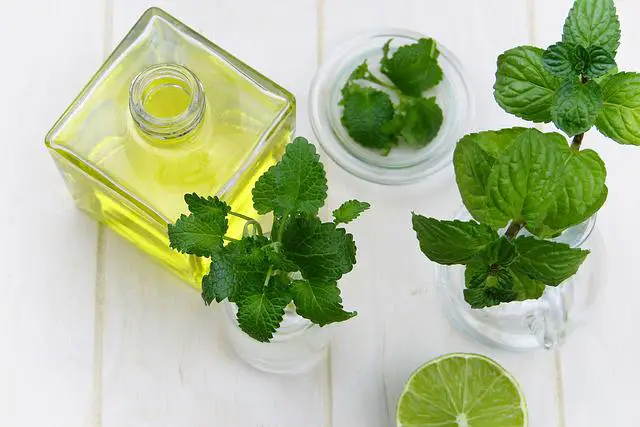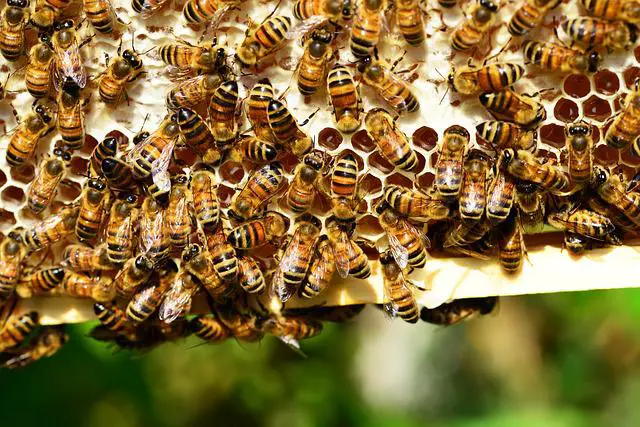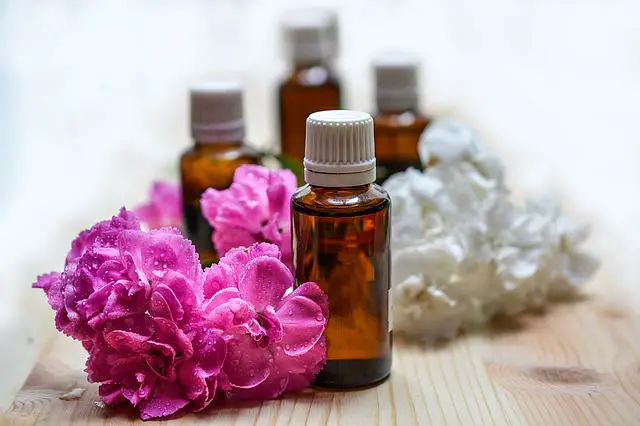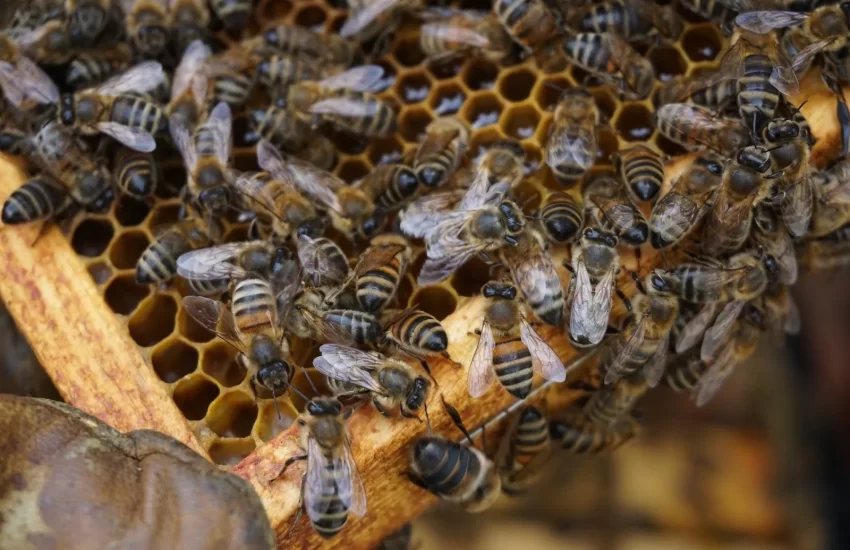Best Essential oils for Hives
The use of essential oils in beekeeping has risen in popularity over the years. While they are not a remedy for every problem facing the bees, It is one of the remarkable ways to promote healthier colonies. There has been a significant decline in bee colonies over the years due to environmental issues and emerging pests and diseases. They are an excellent resource for preventing and treating pests and diseases in bee colonies even as mites increasingly develop resistance to synthetic miticides.
Similar Articles you may like to read –
Why should l use wax on my wooden beehives?
What should I put under my bee hives?
How high should beehives be off the ground?
Which direction should beehives face?
What are essential oils?
Essential oil is a common term for concentrated and highly volatile plant compounds created through the distillation of plant materials. They are characterised by an intensive odor depending on the plant of origin. While most are derived from flowers, stems, or leaves, there are some that are derived from fruits. Individual oils contain numerous plant chemicals which play significant roles in bee health.
Why do some beekeepers prefer essential oils in their colonies?
- As an alternative to synthetic miticides. Due to Varroa mites resistance, most synthetic treatments are failing.
- To avoid miticides toxicity on the colony
- To reduce chemical residues in honey
- Personal preferences; some prefer to practice organic beekeeping.
Uses of Essential Oils in Beekeeping
- Used to lure bee swarms
- It helps in introducing a new queen
- Helps to prevent mold formation in sugar syrup
- Help to control some bee pests and diseases.
- Beekeepers use some essential oils to repel the bees when conducting inspections.
- Provide a feeding stimulant for the honeybees. Lemon grass enhances the consumption of sugar syrup.
Best Essential Oils Used in Beekeeping
Numerous essential oils may be used in one form or the other. Some of the best and most common oils used in beekeeping are lemon grass, thyme, spearmint, eucalyptus, tea tree oil, Wintergreen oil and peppermint, among others.
Lemon Grass
Lemongrass oil is the most versatile of the essential oils used in beekeeping. On top of possessing antifungal and antiviral properties, it contains citral, geraniol, and geranic acids. Here are ways beekeepers use it in their colonies:
- To prevent nosema disease in beehives.
- To eliminate varroa and tracheal mites.
- As a nutritional supplement to improve the health of the bee colony. Its inclusion in supplement food stimulates bees to eat and helps the food not go back.
- While introducing a queen in a colony to give the bees and queen the same scent.
- As a cheap and effective way of attracting bee swarms, its smell is similar to honey bee’s attractant (queen pheromone) that attracts bees. For best results, use drops of lemongrass oil on absorbent paper. It helps to release the oil scent for an extended time.
One of the disadvantages of using it in weak hives is that it draws robber bees into the hive and should be used with caution. Again, if you feed one hive in your apiary, you should provide all the others since it will attract other bees.
Tea Tree Oil
It is famed for its fungal, antibacterial, and antiviral properties. Beekeepers incorporate it in sugar syrup while feeding the bees to help in treating diseases like Nosema. Nosema is a highly destructive disease that affects queens, drones, and worker bees. Affected bees cannot fly as usual and resulting in crawling and trembling. The infested honey bees age prematurely, which reduces the colony population.
Thyme Oil
Thymol, the active ingredient in thyme oil, is a phenolic monoterpene derived from thyme shrub. It helps in controlling varroa mites by confusing and blocking its pores. It is used together with a screened bottom board. Once the mites become confused, they fall to the ground and cannot climb back to the hive. The antifungal properties in thymol also help to prevent and control Chalkbrood disease. Thymol is used in commercial products like Apilife Var and Apiguard.
Spearmint Oil

Essential oils in the mint family help to treat varroa mites, just like thyme oil. It is often used together with lemon grass oil to improve the health of honey bees. It also helps to mask all other scents in a hive but does not mimic any bee pheromone. This helps to keep insects and predators away from your beehive.
Ways of Administering Essential Oils to Bee Colonies

Through Syrup
You do this by first making a 1:1 sugar syrup and adding a few splashes of essential oil. Since the oils are insoluble in water, you can get them to disperse nicely in the mixture by using lecithin powder. A small portion of powder is enough for the task and is not harmful to bees.
Through Pollen Patties
They are made by including a few drops of essential oil on pollen patties. Some pollen patties already contain essential oils. While pollen patties are sold commercially as builders or winter patties, it is good to make your own since you will be in control of the ingredients.
When Working in the Hive
Other than using a bee smoker, some beekeepers with a sugar–water mixture to calm down the bees. They immediately start licking the mixture. If you want to feed the bees with essential oils, you can include them in the water mixture. However, you should avoid chilling or spraying the bees directly into the cells.
More articles you may like to read –
How do you keep moisture out of a beehive in the winter?
When should you not inspect a beehive?
Will an empty beehive attract bees?
Will an empty beehive attract bees?
Cautions When Sourcing Essential Oils
- Be sure to source food-grade oils
- Ensure there is the organic certification mark
How do essential oils help to control varroa mites?
Essential oils help to control mites through the bee’s blood or directly. When the mites come in contact with essential oils such as tea tree oil, they die in minutes. An infected bee can only feed on sugar syrup or pollen patties. Mite reproduction is inhibited when bees feed on syrup or cake with essential oils. Bees transfer foods or fluids from one another, and in the process, oils are also passed from bees to bees. They are also given to the larvae as they are fed by the house bees. When female varroa feed on the larvae, they are poisoned.
In the use of thymol to control varroa mites, the greatest challenge is dosage since it can be lethal to bees. Beekeepers should be cautious when using this essential oil( two to four times the concentration used to kill mites can kill the bees)
FAQs
Are essential oils safe for your bee colony?
While we know essential oils as natural products, they are not natural to bees. It is good to be cautious about the use of essential oils in your colonies. They contain potent compounds that cause great harm if misused or in high dosage. Some of the methods of their application are not approved legally, although beekeepers use them anyway to save their colonies. When it comes to honey bee products, they are pretty safe. The oils evaporate at normal temperatures and leave no traces behind the products.
Are there some essential oils that can be used to keep bees away?
You can use essential oils if you want to deter bees from a specific area or property, you can use essential oils. This has been practised for decades. Some of these essential oils include citrus, peppermint, eucalyptus, citronella, and geranium. You can also apply these oils directly to your skin.



